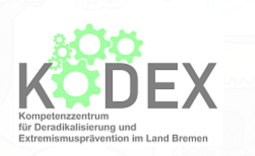The German Federal Foreign Office has made an active effort to facilitate the development of structures to support German child returnees from Syria and Iraq and their relatives. Children in ISIS-affiliated families are at increased risk of various adverse childhood experiences, both during their lives in Syria and Iraq and upon their repatriation. Moreover, security services, national governments, and civil society continue to express concerns that these children have been exposed to ISIS ideology and that they may therefore pose future security threats. This renders them particularly vulnerable to social exclusion and stigmatisation. While research on childhood adversities emphasises the importance of long-term support mechanisms, very little is currently known about how child returnees develop once they have been repatriated. This is a particularly pressing concern for practitioners, policy-makers and family members who aim to ensure the ongoing availability of effective interventions.
The PERSIST project seeks to enhance the development of practical measures to ensure the long-term support of children in families impacted by violent extremism and terrorism. As the principal investigator of the project’s research component, Dr Lynn Schneider (ICCT) is building an unprecedented empirical evidence base on the psycho-social development of ISIS-affiliated child returnees after their repatriation. The project specifically moves beyond an assessment of their wellbeing at the time of their return and focuses on the factors that impact children’s long-term development in their home countries. Moreover, it aims to explore the conditions under which guardians and family members would proactively seek out support when they experience challenges.
The project is funded by the German Federal Office for Migration and Refugees.
About the project
The aim of the PERSIST project is to develop strategies for the sustainable and preventive supervision and support of children and adolescents in families impacted by violent extremism and terrorism.
While countries across the world are increasingly committed to repatriating ISIS-affiliated children and mothers from Syria and Iraq, their effective, long-term support for these children has so far been complicated by various challenges. According to practitioners with experience in the repatriation and supervision of these families in Germany, ensuring child returnees’ successful reintegration and development would require innovative and careful co-operation and clear role divisions between security authorities, youth welfare offices, and other individuals and institutions in the families’ environment(s). They also noted the importance of developing preventive measures to counteract potential negative developmental outcomes associated with trauma and extremist exposure. However, a lack of knowledge about how most children have developed since they have been repatriated means that practitioners and policy-makers currently lack the evidence base necessary to develop interventions targeted at these children's needs. In turn, there are currently no long-term support mechanisms in place to respond to emerging issues in a timely manner.
PERSIST is a joint project of the ICCT, the Bremer Senator für Inneres und Sport, and i-Unito (The German Institute for Social Work Development and Radicalisation Prevention) and is planned for three years (2024–2026).
The ICCT will conduct a systematic review of the psychosocial development of children in families impacted by violent extremism and terrorism. Together with Repatriate the Children, we will carry out in-depth interviews with social workers, educators, and family members in multiple countries to gain insight into the lives of child returnees after their repatriation.
We will identify factors that positively and negatively impact their reintegration and development. While the research project focuses on child returnees internationally, the data is specifically designed to inform interventions in Germany. At the same time, the ICCT will publish policy briefs and academic papers to highlight the conditions that are conducive or harmful for the successful long-term wellbeing of child returnees in various countries, which will be important for practitioners and policy-makers internationally.

